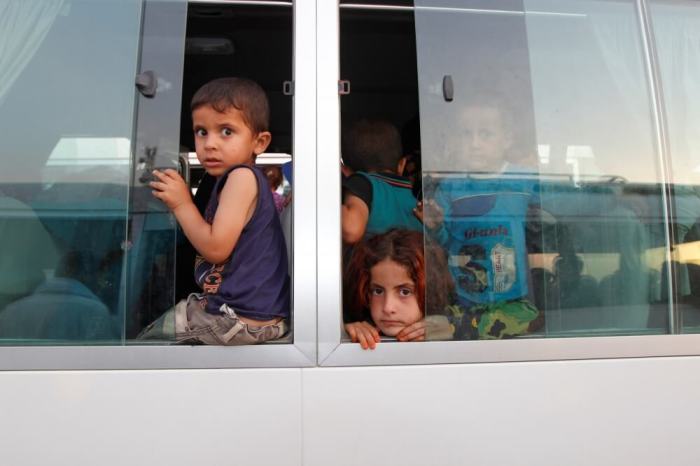How Should Christian Parents Talk to Kids About Evil in the World, Like ISIS?

Many parents dread talking about evils like genocide with their children, but Russell Moore, president of the SBC's Ethics & Religious Liberty Commission, says it's a subject they must not avoid.
In a podcast posted on his website last week, the president of the Southern Baptist Convention's Ethics & Religious Liberty Commission, recounted how one of his sons asked him if the Holocaust really happened after watching The Boy in the Striped Pajamas, a film based on the World War II novel by Irish author John Boyne.
His son was so shaken he wanted to sleep in his parents bedroom that night and was even more disturbed to hear what happened in the Holocaust was much worse than what was depicted in the movie.
While no parent relishes talking about grave evils like the Islamic State terror group or grotesque atrocities in the news, how can they approach this difficult subject?

The Christian Post reached out to Caleb Burr, the preschool and elementary manager at The Falls Church-Anglican in Falls Church, Virginia, just outside of Washington, D.C. for his advice to parents.
Burr, a Wheaton College graduate who is pursuing a masters degree at Trinity School for Ministry in Ambridge, Pennsylvania, said in an interview with CP that "when you talk about evil with children I think the first thing you do and think through is the ways you yourself understand evil."
"You want to have solid and thoughtful answers before you minister to children because you can't give what you don't have," he explained. "As parents one serves as a translator for these children so we need to be thoughtful and discerning in the way in which we convey this. We don't just want to use large, big, words they won't understand."
Just as you wouldn't talk through the nuances of calculus with a first-year algebra student, he added, "I think the biggest thing that you stress when you talk about evil is 'Jesus wins.' And as we think through evil and destruction, we do want to couple it within this larger four-part story of creation, fall, redemption, and new creation as a way to frame conversations on evil."
"We do want to pair it with the hope and trust that evil will not last forever and there will be victory of good, beautiful, and true things in this world," Burr said.
Moore further offers in his podcast that parents shouldn't attempt to give pat, easy answers to the grisly injustices and pains of life. Likewise, they also shouldn't be afraid to respond to questions by simply saying, "I don't know."
"If you give the child an easy answer you're not going to address the fundamental problem," Moore said. Children then think you want to avoid it, or worse, that you're not that concerned.

Nor should God's sovereignty ever be interpreted as tacit approval of an evil act.
"We don't want the child to see God as evil. And so a child that sees God as sovereign but who does not see the biblical picture of what sin is and how sin is a revolt against God, can have a sovereign God who is nonetheless evil," Moore said. "And many people see God that way."
But the Bible reveals a picture of God as sovereign and evil as evil, he added. And Christians cannot forget who holds the future.
"I have confidence in a God who is moving all of history under the reign of Jesus Christ, a God who is not distant from our suffering but a God who sent his only begotten son to suffer in the middle of our atrocities at the cross," Moore concluded.
To listen to the Signposts podcast on how to talk to children about evil, click here.



























